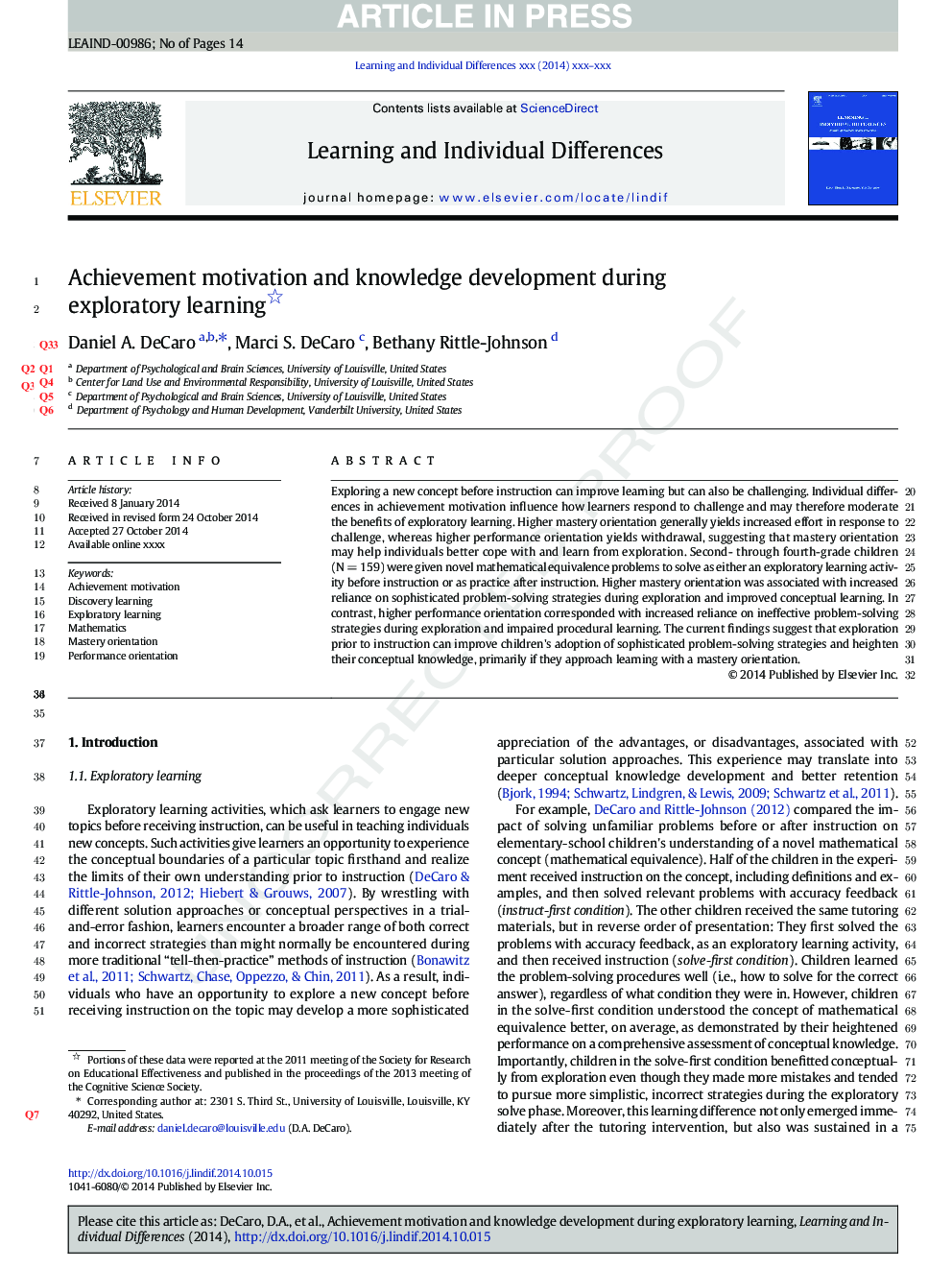| Article ID | Journal | Published Year | Pages | File Type |
|---|---|---|---|---|
| 6844882 | Learning and Individual Differences | 2015 | 14 Pages |
Abstract
Exploring a new concept before instruction can improve learning but can also be challenging. Individual differences in achievement motivation influence how learners respond to challenge and may therefore moderate the benefits of exploratory learning. Higher mastery orientation generally yields increased effort in response to challenge, whereas higher performance orientation yields withdrawal, suggesting that mastery orientation may help individuals better cope with and learn from exploration. Second- through fourth-grade children (NÂ =Â 159) were given novel mathematical equivalence problems to solve as either an exploratory learning activity before instruction or as practice after instruction. Higher mastery orientation was associated with increased reliance on sophisticated problem-solving strategies during exploration and improved conceptual learning. In contrast, higher performance orientation corresponded with increased reliance on ineffective problem-solving strategies during exploration and impaired procedural learning. The current findings suggest that exploration prior to instruction can improve children's adoption of sophisticated problem-solving strategies and heighten their conceptual knowledge, primarily if they approach learning with a mastery orientation.
Keywords
Related Topics
Social Sciences and Humanities
Psychology
Developmental and Educational Psychology
Authors
Daniel A. DeCaro, Marci S. DeCaro, Bethany Rittle-Johnson,
